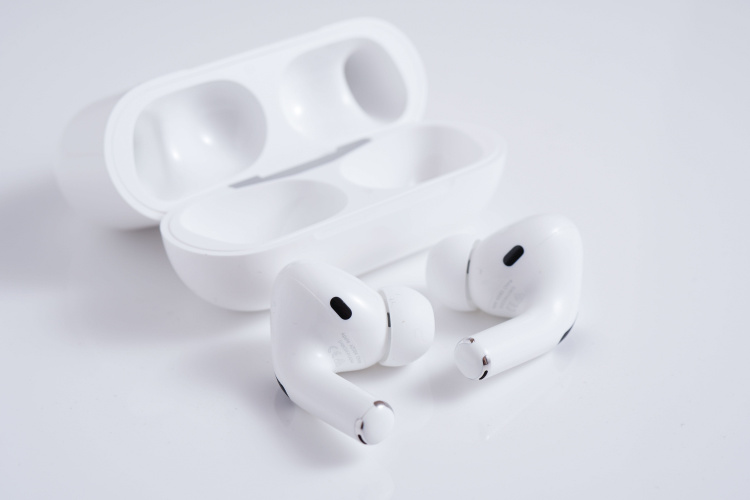Imagine dancing in the rain while grooving to your favorite song or powering through an intense workout without breaking a sweat. Sounds nice, right? Well, a pair of AirPods cannot promise you the first one, but it can help you to achieve the second. These amazing TWS earbuds from Apple are the best when it comes to sound and experience, but can this costly piece of technology handle water? From accidental spills to impromptu rain showers, this post details whether or not your AirPods are waterproof, and if yes, then up to what extent.
Does AirPods Have a Waterproof Rating?
Unfortunately, the AirPods are not waterproof, but some models have an IP rating that makes them water-resistant to a certain extent. The AirPods (1st and 2nd gen), AirPods Pro (1st gen), and AirPods Max have no IP rating, meaning all these models can easily get damaged if exposed to water splashes and sweat.
On the other hand, the AirPods Pro (2nd Gen) and AirPods (3rd Gen) are the only AirPods models with an IPX4 rating. This means these AirPods have no dust protection but can withstand water splashes and should sustain any damage from water splashes from any direction. To make things easier to comprehend, these AirPods are fine to use in the rain and during an intense workout.

It is also important to note while all the AirPods do have certain water resistance capabilities, water damage can still occur if your AirPods are subjected to far more extreme conditions than they are designed for.
Note: The IPX4 rating does not mean you can take your AirPods out swimming or in the shower (that kicks in at IPX7).
Difference Between Waterproof and Water Resistance
Now that you that AirPods are water-resistant and not waterproof, it is important to understand the difference between these two. Simply saying, when something is waterproof, it is impervious to water damage and can easily sustain water activities such as swimming, water sports, and more. However, a water-resistant object can resist water only up to certain conditions.
For example, AirPods 3rd Gen and AirPods Pro 2nd Gen have IPX4 ratings. It means that these AirPods models can survive light splashes of water like rain or sweat but are not suitable for activities like swimming.
AirPods Models and Their Water Resistance
Note: Water resistance is not a permanent condition and it diminishes with time, so be careful while using your Apple AirPods near water bodies.
AirPods Model IP Rating Water Resistance Sweat Resistance AirPods 1st Gen No No No AirPods 2nd Gen No No No AirPods 3rd Gen IPX4 Yes Yes AirPods Pro 1st Gen No No No AirPods Pro 2nd Gen IPX4 Yes Yes AirPods Max No No No
What to Do If Your AirPods Get Wet?
Accidents can happen anytime and anywhere; sometimes, water can find its way into your beloved AirPods. Whether you’ve accidentally dropped your AirPods in a puddle, spilled a drink over them, or got caught in a sudden rainstorm, water damage is a big concern.
But fear not, as we compiled a list of quick actions that can make a big difference in saving your AirPods, whether they are water-resistant or not. Here’s how to dry and clean AirPods if they are submerged in water:
1. Retrieve Them ASAP
When you discover water has entered your AirPods, remove them from the water source as quickly as possible. Though it’s obvious, the longer your earbuds stay submerged, the higher the chances of irreplicable damage.
2. Remove Both AirPods from the Case
Once you have retrieved your AirPods from the water source, you should first remove both the AirPods from its case. This will allow any moisture trapped inside the AirPods case to evaporate. If they are outside the case already, don’t put them in the case until they are dry.
3. Dry Thoroughly
Gently shake both the AirPods to get rid of any excess water, then pat them dry using a soft, lint-free cloth. Make sure not to push too hard, as this can make water seep further into the device.
4. Leave them to Dry and Wait
Place your AirPods in a well-ventilated, dry area for at least 24 to 48 hours to let them thoroughly dry. Also, avoid using direct heat sources like hair dryers, as the heat can damage the internal components.
5. Test Your AirPods
Test your AirPods once the drying period is over. If they function normally, you are in luck and can continue using them. If not, we suggest you contact Apple Support or visit an authorized service center instead of applying any more home remedies.
Note: Always remember, that prevention is the best solution. While some newer models of AirPods have improved water resistance, it’s always wise to avoid exposing them to water whenever possible.
Moreover, there may be times when your AirPods have dirt buildup or are clogged up due to regular use, causing lower volume output. In that case, we suggest you follow our guide to clean your AirPods and make them look like new again.